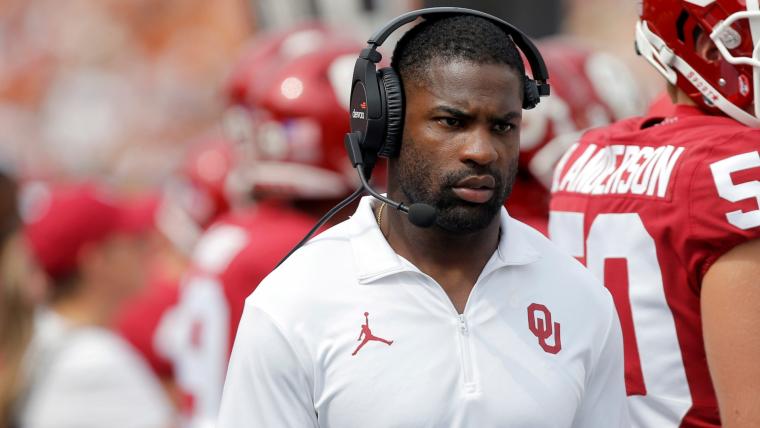In August 2024, the University of Oklahoma’s football program faced a significant challenge when running backs coach DeMarco Murray received a one-game suspension from the NCAA due to recruiting violations. The NCAA’s investigation revealed that over a 16-month period, Murray had impermissible contact with 17 prospects, totaling 65 phone calls and 36 text messages. Murray claimed he was unaware that a COVID-19 waiver of recruiting contact rules had expired; however, the NCAA determined that the university had adequately informed its coaching staff about the rule changes.
The suspension was a significant moment for the Sooners, as Murray is not only a key member of the coaching staff but also a celebrated former player. He holds the university’s records for all-purpose yards and touchdowns and was the 2014 NFL Offensive Player of the Year. His leadership and experience have been instrumental in developing the team’s running backs and enhancing their performance on the field.
Head coach Brent Venables expressed his disappointment regarding the situation, emphasizing the program’s commitment to compliance and the importance of adhering to NCAA regulations. He stated, “There’s no doubt that I’m incredibly disappointed in what took place. I do know our staff works to be mindful of the rules, and we have parameters—very clear, strong parameters—that are in place.” Venables also acknowledged that despite these measures, mistakes can occur, and it’s crucial to take responsibility and move forward.
The timing of the suspension coincided with the Sooners’ season opener against Temple. In Murray’s absence, offensive analyst Nick Basquine assumed the responsibilities of coaching the running backs. The team managed to secure a decisive 51-3 victory, rushing for 217 yards on 35 carries. Freshman running back Taylor Tatum led the ground attack with 66 yards on four carries, showcasing the depth and resilience of the roster.
The incident also led to broader discussions about the program’s reputation and commitment to ethical conduct. Columnist Berry Tramel noted that such infractions could tarnish the university’s hard-earned good name, emphasizing the importance of maintaining integrity in collegiate athletics. He highlighted that while the violations might seem minor to some, they undermine the fairness and level playing field that the NCAA strives to uphold.
In response to the violations, the NCAA imposed several penalties on the University of Oklahoma’s football program. These included a $5,000 fine, one year of probation, and a three-week ban on recruiting phone and electronic correspondence from December 8, 2024, to March 31, 2025. Additionally, the program faced restrictions on unofficial visits during the season opener against Temple and limitations on recruiting days and communications during specific periods,
Reflecting on the incident, it’s evident that the University of Oklahoma took swift action to address the violations. The institution’s proactive approach in self-reporting and cooperating with the NCAA demonstrates a commitment to upholding the integrity of its athletic programs. As the season progressed, the Sooners aimed to learn from this experience, reinforcing the importance of compliance and ethical conduct within the team culture.
In conclusion, while the suspension of DeMarco Murray was a setback for the Oklahoma Sooners, it also served as a pivotal moment for reflection and growth. The program’s response underscored its dedication to maintaining high standards and the well-being of its student-athletes, ensuring that such incidents are prevented in the future.

